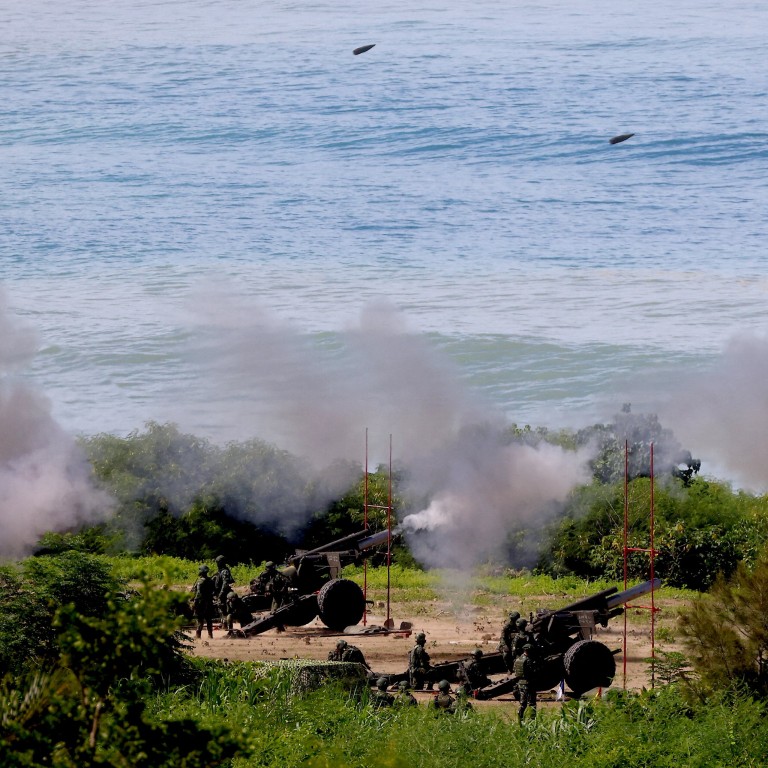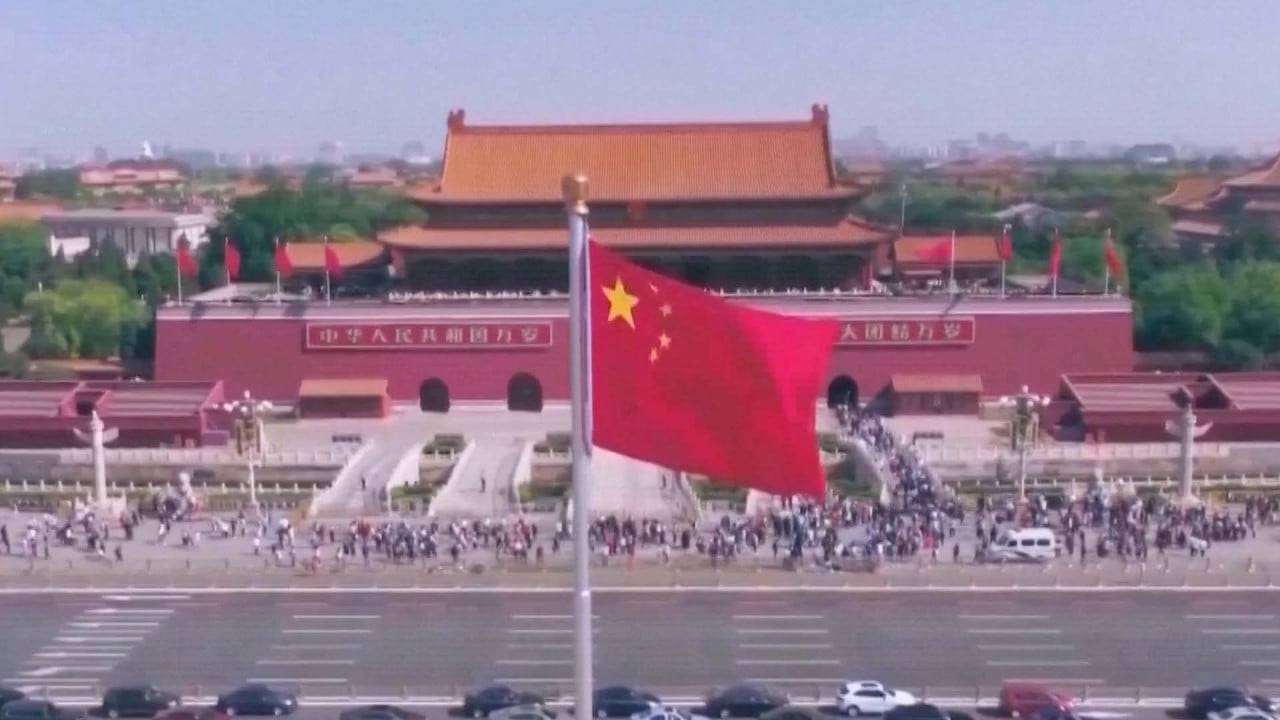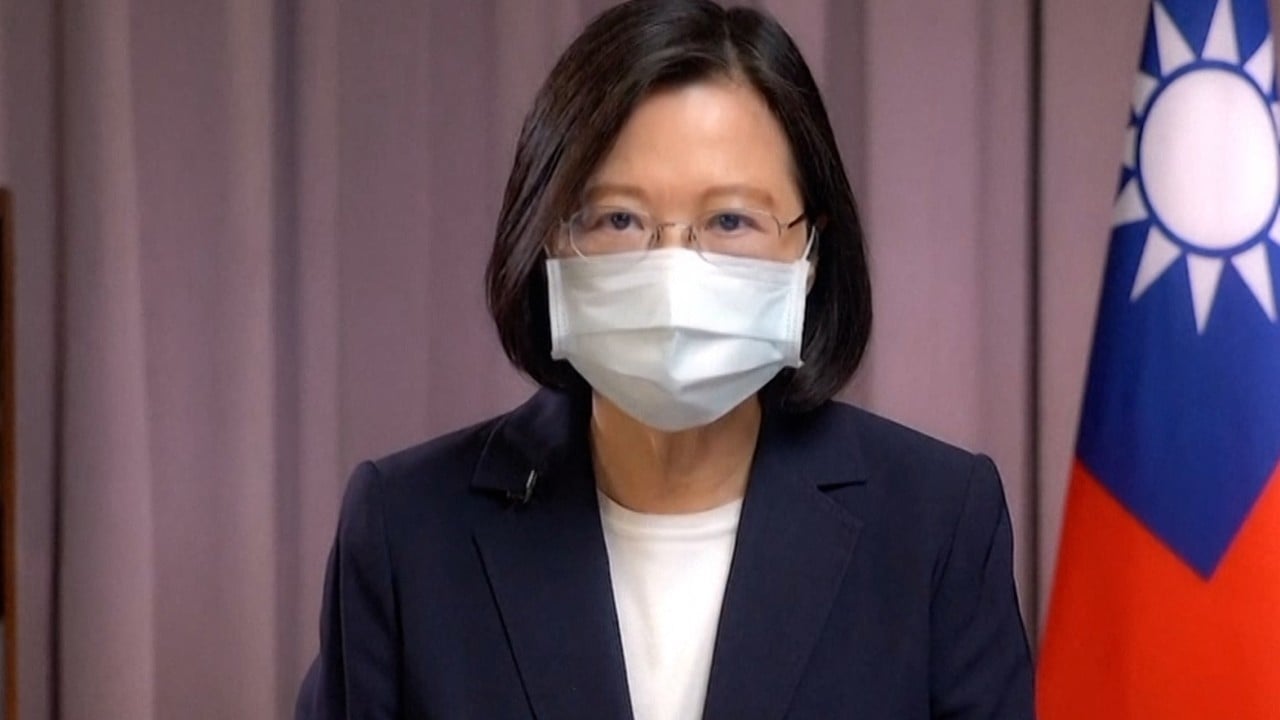
‘Highly unacceptable’: Taiwan rejects Beijing’s ‘one country, two systems’ plans for unification
- Island says it is absurd for Beijing to promote its so-called peaceful unification scheme while surrounding Taiwan with war games
- Island’s top weapons maker says it will conduct missile tests this month
According to the National Chung-Shan Institute of Science and Technology, the island’s top weapons maker, it will conduct missile tests on August 18-19 and August 25-26 in areas off southeastern and eastern Taiwan.
Taiwan’s Central News Agency quoted a retired official from the institute as saying the tests were expected to involve Hsiung Sheng surface-to-surface missiles, which can reach as far north as Qingdao in the mainland province of Shandong.
Pelosi – second in line to the US presidency – was the highest-ranking American official to visit Taipei in 25 years, a trip that Beijing said was a major violation of its sovereignty
On Wednesday, the same day as it announced a formal end to its drills, Beijing issued a policy white paper outlining its position and intent for reunification with Taiwan.
The document also covered proposals on how it could be achieved, with the one country, two systems model applied in Hong Kong seen as the best option for the purpose.
“Peaceful reunification and one country, two systems are our basic principles for resolving the Taiwan question and the best approach to realising national reunification,” it said.
It stressed that reunification by peaceful means remained Beijing’s preferred option and it would resort to force only if it had to take drastic measures against provocation by separatist elements or external forces.
Beijing warns other nations not to follow US ‘political performance’ on Taiwan
In response, Taiwan blasted Beijing, saying it was absurd to promote its so-called peaceful unification scheme while surrounding the island with war games.
“China has repeatedly staged provocative actions, including sabre-rattling drills, cyberattacks and disinformation to try to coerce Taiwan in recent days, and even released its so-called policy white paper towards Taiwan to promote its so-called grand mission of unification with the motherland,” Taiwanese foreign ministry spokeswoman Joanne Ou said on Thursday.
“The content of the white paper not only ignores the long-time fact that the two sides of the Taiwan Strait do not belong to each other but also violates international law and Taiwan’s sovereignty … and for this, we express our solemn protest and condemnation.”
Ou said the mainland Chinese communists had never ruled Taiwan and the sovereignty of the island belonged to the 23.5 million Taiwanese people, who would not accept unification based on Beijing’s one country, two systems proposal.
She said Beijing used Pelosi’s visit as an excuse to step up sabre-rattling not only in the Taiwan Strait but also in the region. “China is actually the international troublemaker for creating the source of regional instability,” she said.
Taiwan’s Mainland Affairs Council, the island’s top cross-strait policy planner, also slammed the white paper as “full of wishful thinking and disregard for facts”.
The council said the cliché-riddled white paper was released ahead of the Communist Party’s national congress and meant to convey to the mainland public that Beijing authorities had done something about the cross-strait issues. It also said the white paper served only to further upset the Taiwanese people.
“It has long been a mainstream opinion in Taiwan that one country, two systems is unacceptable and is not an option for Taiwan,” it said.
In Beijing, Taiwan Affairs Office spokesman Ma Xiaoguang said the criticism of the white paper by the ruling Democratic Progressive Party amounted to “smear attacks”.
Ma said the one country, two systems model was a peaceful and sincere model, and would eventually be accepted by most Taiwanese people.
Analysts said the white paper reflected Beijing’s firm intent to speed up reunification with the island because it would be seen as a big achievement for President Xi Jinping.
“The white paper would have been prepared for some time and Pelosi’s visit hastened its publication,” said Chang Wu-ueh, a professor of cross-strait relations at Tamkang University in New Taipei City.
“The mainland needed to clarify and uphold its position on the issue in the face of the growing US-China row and international support for Taiwan.”
Max Lo, executive director of Taiwan International Strategic Study Society, a Taipei think tank, said the document left out a part in previous white papers about allowing Taiwan to have its own military and Beijing not sending officials or military to the island. At the same time, it promised that unification by peaceful means remained the first choice.
“It is meant to tell the Taiwanese public Beijing intends to reunite with Taiwan by peace and has no plan to resort to forces unless it is compelled to do so,” Lo said.
But he added it was also meant to tell the mainland public that forceful reunification was not its top option and so they could tone down their hostile rhetoric towards the island.
Mainland China and Taiwan split in 1949 at the end of a civil war when the Kuomintang was defeated by Communist Party forces and fled to Taipei.
Beijing sees the island as part of China and has never ruled out the use of force to take control of it. Most countries, including the US, do not recognise Taiwan as an independent state. Washington, however, opposes any attempt to take the island by force.



